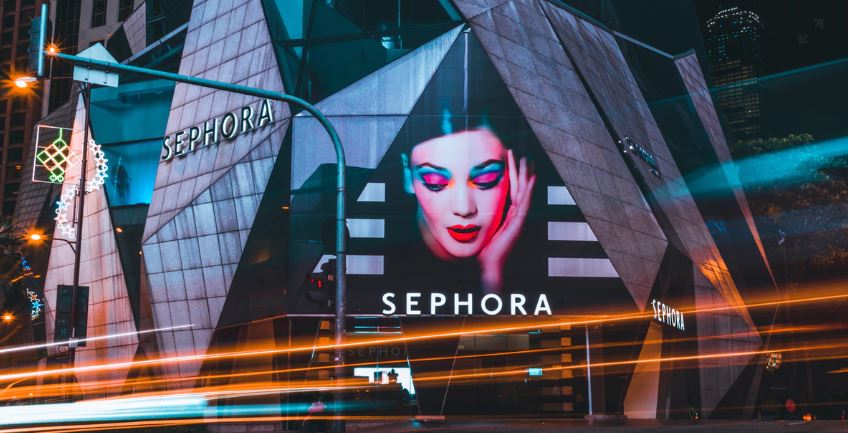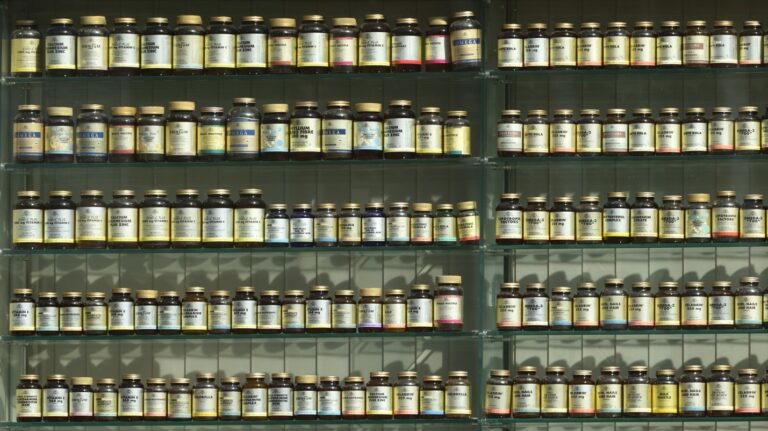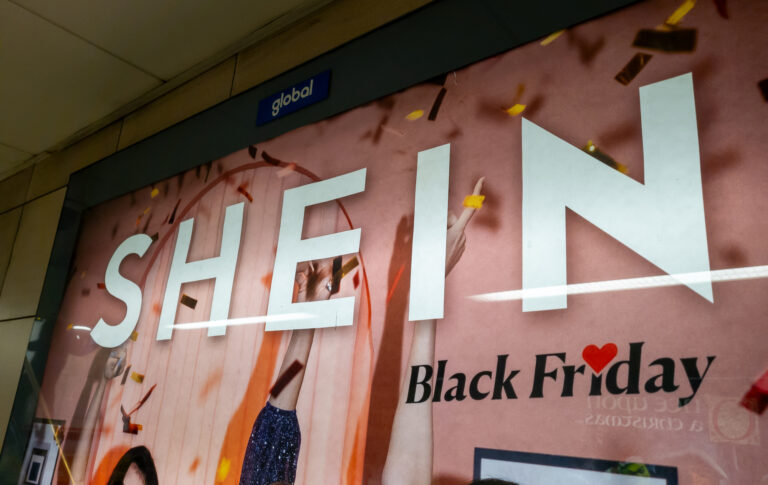Once hailed as the go-to destination for premium beauty in China, Sephora in China now finds itself at a crossroads. Backed by LVMH, Sephora entered the Chinese mainland in April 2005 with its first store in Shanghai, introducing a globally inspired, sleek retail concept. Its stylish interiors and exclusive offerings—including localized brands like SkinVital, Fusion Beauty, and For Beloved One, quickly made it a standout in a then-nascent market.
Download our report on Chinese beauty consumer pain points
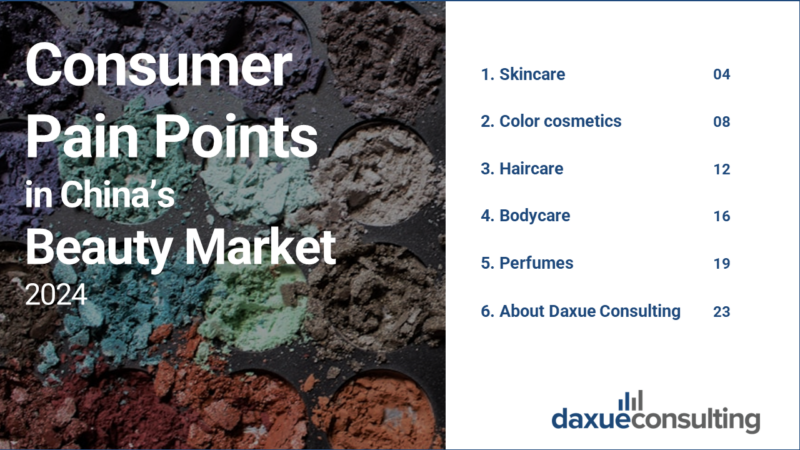
By 2024, Sephora had expanded to over 350 stores across 100 cities, including Beijing, Chongqing, Tianjin, and throughout the Pearl River Delta. Yet after nearly two decades of expansion, Sephora’s performance in China has taken a sharp downturn. Revenues have dropped, management has turned over, and its once-loyal consumer base is questioning its relevance in an era dominated by e-commerce, price-sensitive shoppers, and surging domestic beauty brands.
Sephora’s legacy of exclusivity and prestige, once its greatest strength, now risks becoming a liability. With shopping habits evolving and new competitors reshaping the beauty landscape, Sephora faces mounting pressure to reinvent its strategy or risk fading from the spotlight in one of the world’s second-largest cosmetics market in 2024.
Slowing sales undermine Sephora’s position
Sephora in China, once a powerhouse in the premium beauty retail scene, is now facing a dramatic reversal of fortune. By 2024, Sephora’s China revenues had plunged 19% to RMB 7.1 billion, with net losses ballooning to RMB 646 million, over four times higher than in 2023. Even flagship operations in Shanghai and Beijing failed to turn a profit. Just three years earlier, in 2021, the company had surpassed RMB 10 billion in annual sales, underscoring how steep the fall has been.
Challenges from within and without
Sephora’s decline in China is largely due to fierce competition and shifting market dynamics. As the beauty market rapidly digitized, platforms like Tmall, JD.com, and Douyin emerged as dominant sales channels, offering convenience, competitive pricing, and broader selections. Chinese domestic brands captured over 50% of the market share in 2023, fueled by their strong digital presence and appeal to younger, internet-savvy consumers who value speed, novelty, and personalization. Since 2020, new beauty concept stores like Harmay (话梅) and The Colorist (调色师) have disrupted the retail landscape by emphasizing experiential shopping, including smaller trial-friendly products, immersive store designs, and creative promotions. In contrast, Sephora’s traditional reliance on physical retail has left it struggling to adapt in a market now driven by livestreaming, social media marketing, and instant delivery.
Consumers have also called out Sephora’s confusing positioning. Despite its high-end image, it never properly introduced trending overseas brands like Fenty Beauty. At the same time, it brought in domestic budget labels like Little Ondine, which many felt clashed with its luxury identity. “Are they high-end or discount? I don’t get it,” one RedNote post read. Others voiced similar confusion, saying Sephora now feels “all over the place” and “no longer worth the price.”
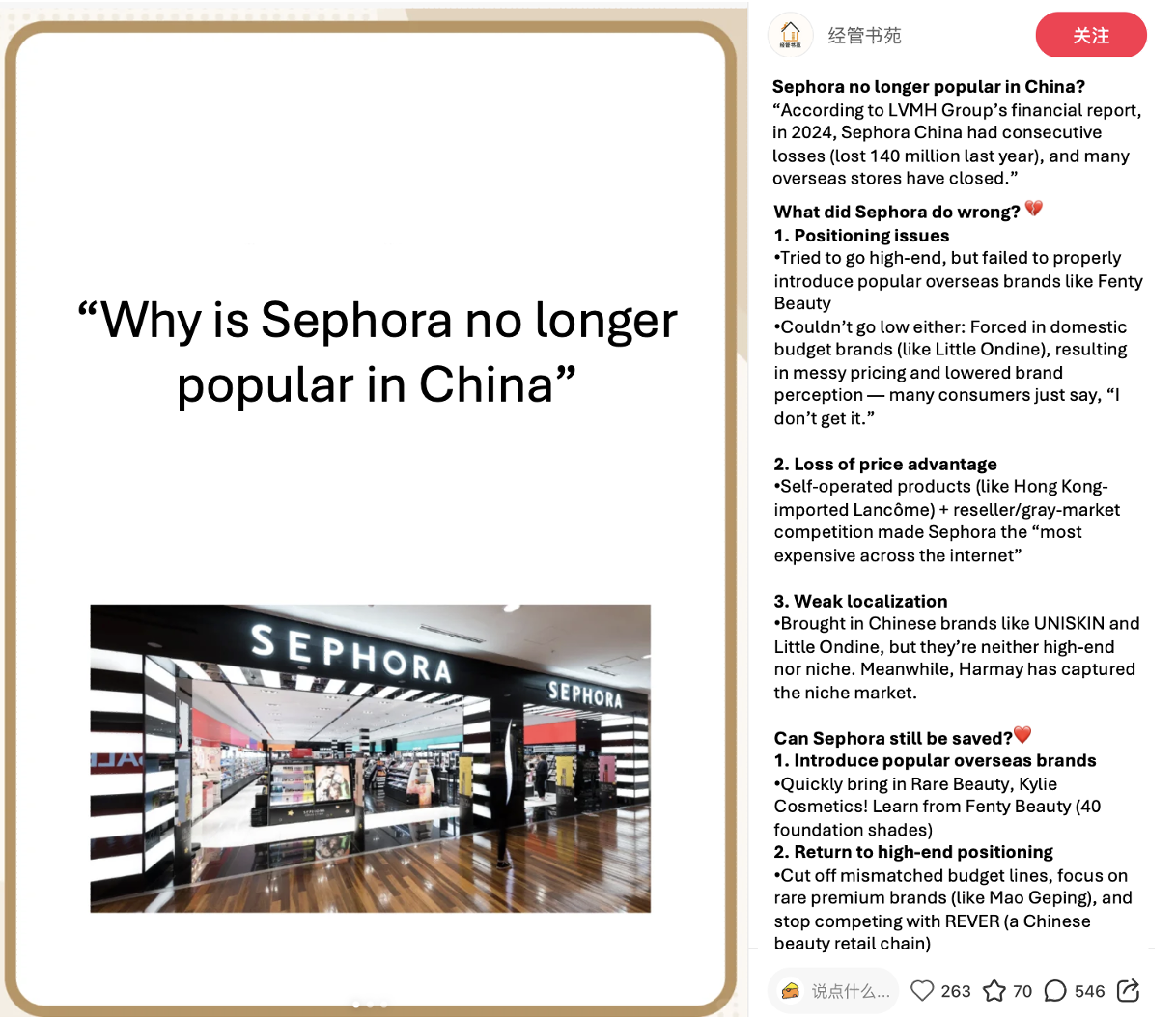
Compounding these external challenges are serious internal issues. In 2024, Sephora in China implemented large-scale layoffs and faced scandals involving the misuse of customer loyalty points by staff. These incidents revealed deeper problems in internal management and stability, weakening the company’s ability to respond quickly and effectively to market changes. A lack of team cohesion and clear leadership further undermined its competitiveness in a fast-moving environment. In January 2024, Maggie Chan, Sephora’s General Manager of Greater China, resigned after five years at the helm, and the company appointed Ding Xia, an ex-Nike executive with a strong track record in retail and digital transformation, as her successor. However, soon after, the company laid off approximately 120 staff, including senior managers, further signaling instability.
The cost of being overpriced
Adding to the difficulty is the broader contraction of the high-end beauty market in China. Retail sales of cosmetics in 2024 fell by 1.1% year-over-year to RMB 435.7 billion, marking the third consecutive year of decline. The high-end segment, in particular, where Sephora is heavily focused, shrank by 3%. In an environment of weakened consumer confidence and economic uncertainty, luxury beauty products, often viewed as non-essential, are some of the first to see cuts in spending. Global brands like L’Oréal, Estée Lauder, and Shiseido have all encountered similar growth challenges in China, highlighting the systemic nature of the downturn.
Meanwhile, Sephora’s perceived value proposition is also eroding. Once synonymous with authenticity and international luxury, Sephora is now viewed by many consumers as overpriced and underwhelming. Shoppers frequently note that the same products are often cheaper at brand counters or on official e-commerce platforms. For example, Lancôme’s Absolu Eye Cream costs RMB 1,200 at Sephora, while the same product sells for RMB 960 at a mall counter—a difference of RMB 240. This lack of consistent price advantage has driven consumers to purchase through more transparent and rewarding channels.
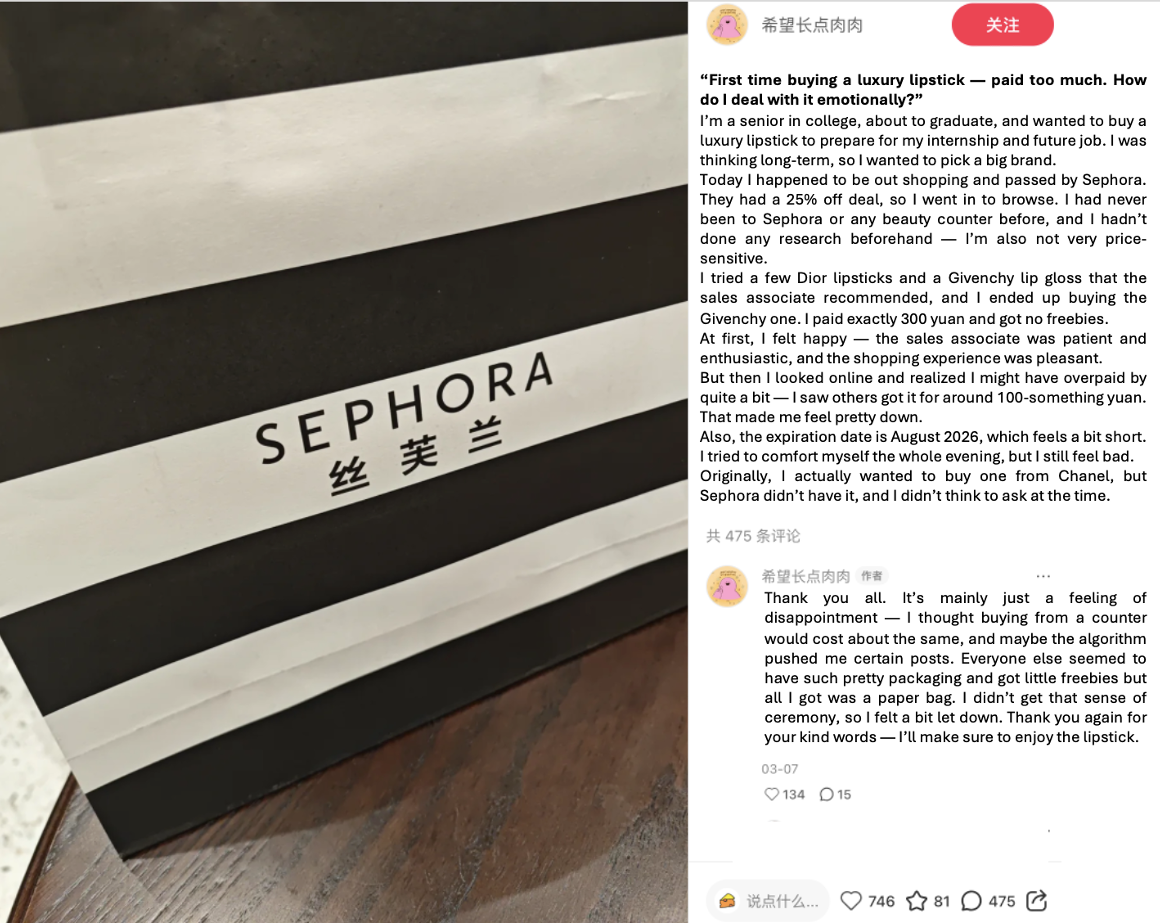
Sephora’s fight to stay relevant
Sephora has not ignored these challenges. In recent years, it has made efforts to localize and diversify. It launched the “Shine on China Made” campaign to support high-end Chinese brands, expanded its presence into third- and fourth-tier cities, and introduced more exclusive and private label products. In December 2024, it announced a partnership with Chinese beauty brand 优时颜 (Uniskin) to launch in 50 Sephora stores across the country an unprecedented move signaling its openness to domestic brands. Sephora in China has also expanded its footprint into over 100 cities, including previously untapped markets like Yichang and Ganzhou.
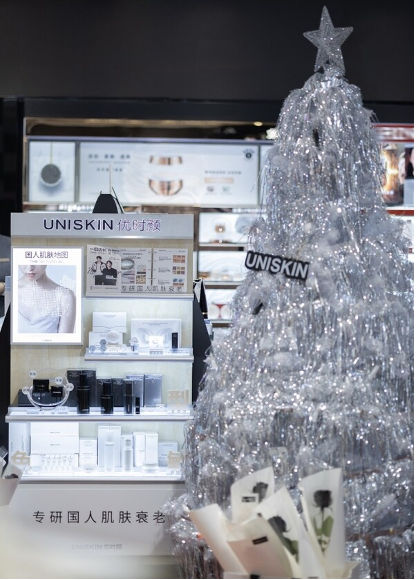
Despite these efforts, it was perhaps too little, too late. New retail competitors such as Harmay, Colorist, and Black Hole are offering more engaging, trend-forward experiences tailored to the next generation of Chinese beauty shoppers. With Sephora also retreating from other major Asian markets like Japan and South Korea, its future in China hangs in the balance.
A wake-up call for global luxury brands
Ultimately, Sephora’s decline in China underscores a broader lesson for international luxury brands
- Sephora’s decline in China shows that global prestige alone no longer guarantees success, where younger consumers prioritize innovation, authenticity, and affordability over brand heritage or global reputation.
- Product curation must have cohesion, mixing luxury with budget brands confused shoppers and eroded Sephora’s premium image, leading many to describe the store experience as incoherent or confusing.
- Sephora’s pricing strategy alienated value-conscious shoppers, as many products were significantly cheaper on brand counters or e-commerce platforms, eroding its perceived fairness and trust.
- The brand was slow to adapt to China’s digital-first retail landscape, where livestreaming, e-commerce, and social media drive purchasing decisions.
- New competitors offered immersive, trend-driven experiences that felt more fun, local, and fresh, qualities global brands must now embrace to stay relevant in China’s market.
Contact us for in-depth beauty market research in China
The cosmetics market in China is a rapidly evolving landscape, driven by the rising demand for high-quality products, innovative ingredients, and sustainable practices. Daxue Consulting offers specialized market research in China, providing a comprehensive understanding of the preferences, behaviors, and emerging trends shaping the cosmetics market.
Our Chinese consumer insights empower businesses to tailor their products and marketing strategies to resonate with local tastes and expectations. We offer consulting services that help you stay ahead of industry developments and achieve sustainable growth. Connect with us today to discover how our expertise can support your brand’s success in China’s thriving cosmetics market.



